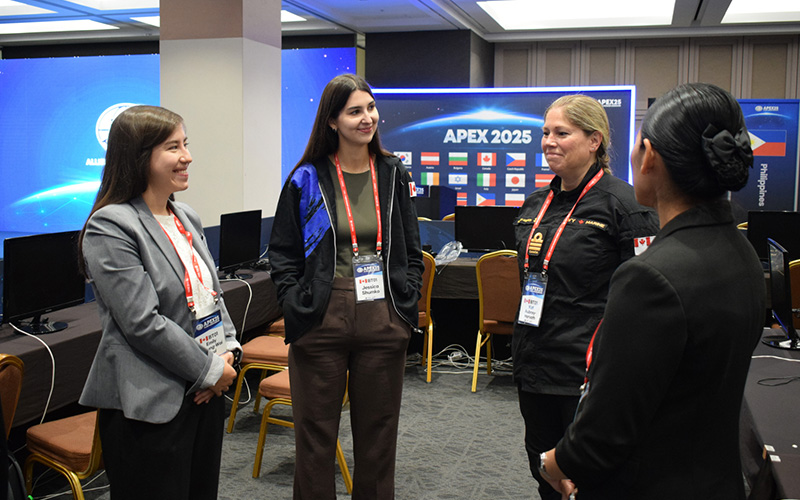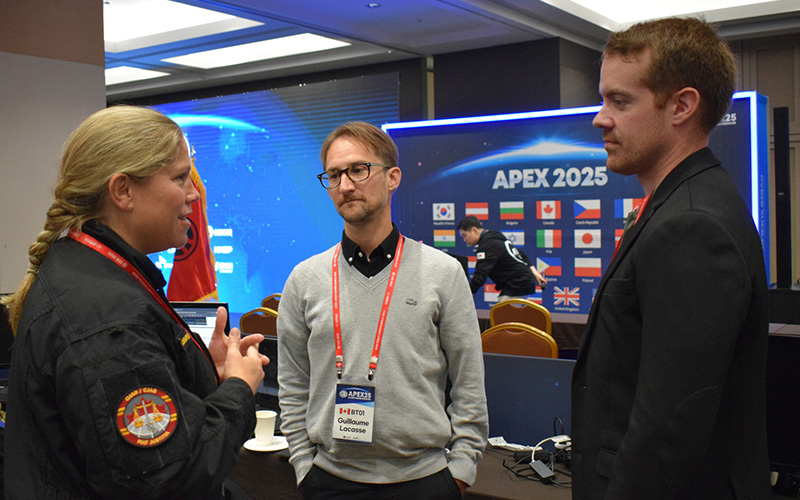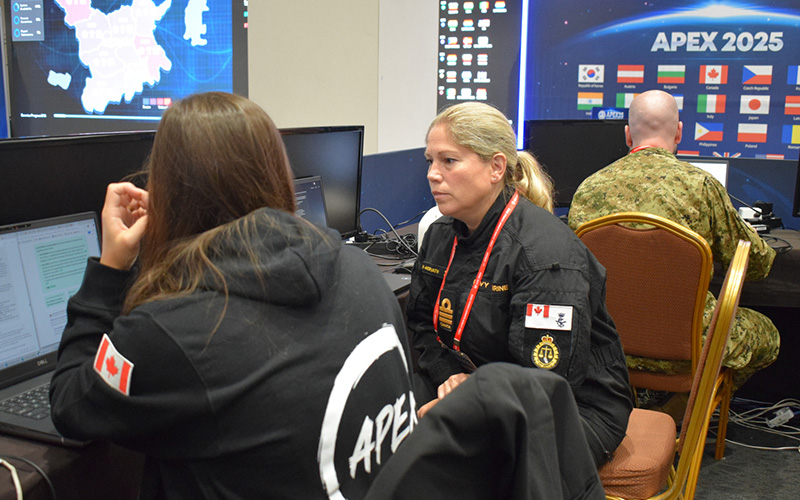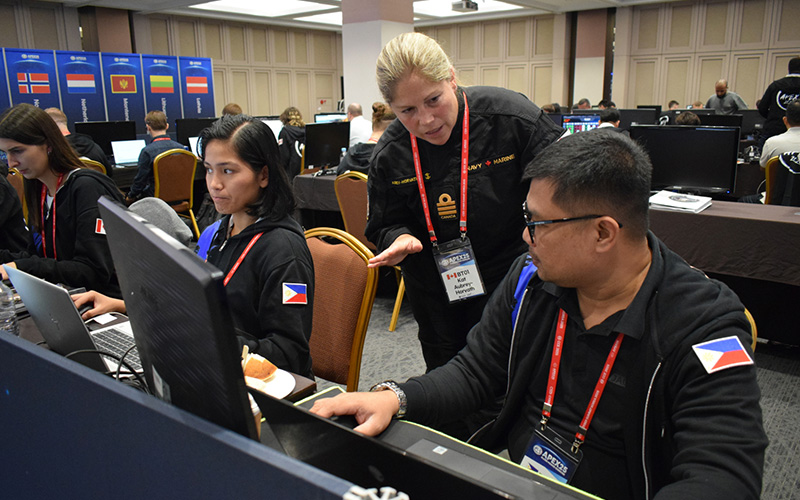Cyber law at the speed of operations: Inside the CAF’s legal front line in cyberspace
September 24, 2025 - Defence Stories
Estimated read time – 2:15
By: Major Christopher Daniel, Senior Public Affairs Officer, CAFCYBERCOM
In a domain where threats evolve by the second, Canadian Armed Forces (CAF) cyber operators aren’t just defending national interests with cutting-edge technology — they’re doing it with legal precision. At the forefront is Commander Kat Aubrey-Horvath, Director of Cyber Operations Law and Senior Legal Advisor to CAF Cyber Command (CAFCYBERCOM).
Commander Aubrey-Horvath leads a team of legal officers fully embedded in operations — not observing from the sidelines but working directly alongside planners and operators throughout all phases of cyber mission planning and execution.

Caption
Commander Kat Aubrey-Horvath, with Defence Team and Global Affairs Canada colleagues, connects with a representative of the Armed Forces of the Philippines at APEX 2025.

Caption
Commander Kathryn Aubrey-Horvath provides legal advice to cyber experts from Communications Security Establishment during APEX 2025.
“Cyber operations are dynamic and fast-paced,” she explains. “Sitting in an office waiting for legal questions to come to us would significantly reduce the effectiveness of my team’s ability to contribute to CAFCYBERCOM’s mission — which works well for us legal advisors, because being in the mix is much more rewarding and fun!”
That proactive approach was front and centre during APEX 2025, held in Seoul, South Korea, from September 8 to 11. The multinational cyber exercise brought together technical field operations and high-level policy simulations. As the legal lead for the Canadian strategic team, Commander Aubrey-Horvath worked closely with her Global Affairs Canada counterpart to provide legal support across the full spectrum of CAFCYBERCOM’s objectives.
“Legal advice on cyber operations regularly spans from the tactical up to the strategic levels,” she says. “Questions ranged from what information is required to support a legal determination of attribution, to legal considerations for cyber attacks on hospitals.”
Applying legal frameworks to cyberspace presents unique challenges — not because the law is different, but because the context is constantly shifting. “The law is the same, but applying old law to a rapidly evolving domain makes the legal questions really interesting,” she explains. “For our legal advice to be relevant and effective in this fast-paced environment, we need to ‘lawyer at the speed of cyber’.”

Caption
Commander Kathryn Aubrey-Horvath and her counterpart from Global Affairs Canada discuss legal perspectives on a strategic scenario during APEX 2025.

Caption
Commander Kathryn Aubrey-Horvath provides legal advice to cyber experts from the Armed Forces of the Philippines as they analyse a strategic scenario during APEX 2025.
International cooperation also adds complexity. “Not only do interpretations of international law differ, but the actual applicable law itself might be different,” she notes. “If the CAF does something because we consider it to reflect our treaty obligations, and another state’s armed forces does the same thing because they think it reflects a customary international law obligation, then our actions might still look the same.”
Her message is clear: legal rigour is not a constraint on cyber operations — it is an essential element of responsible conduct. “Law applies to the Canadian Armed Forces’ activities in cyberspace just as it does to other domains,” she affirms. “While cyber can be seen as cutting edge and dynamic, it is not lawless.”
And for legal professionals considering a future in military cyber law, Commander Aubrey-Horvath offers this candid advice: “Be the kind of lawyer who is energized by novel questions… It really is the coolest job.”